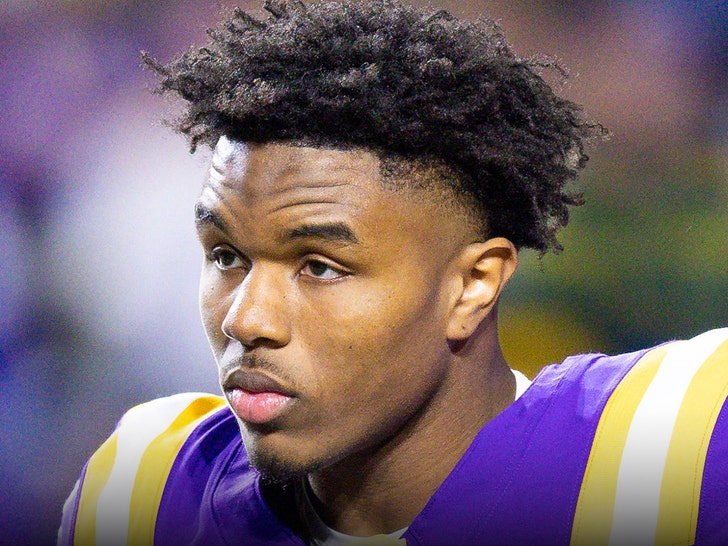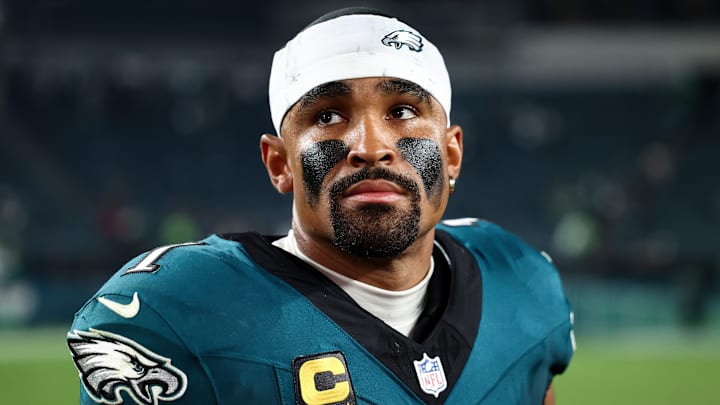NFL quarterback Jalen Hurts has broken his silence on one of the most heartbreaking stories in recent sports memory — the death of former LSU wide receiver Kyren Lacy, whose life ended far too soon amid controversy, media pressure, and public judgment.

In a deeply emotional statement, Hurts described Lacy’s death as “a failure of humanity,” saying that the 24-year-old athlete was “crushed by lies and judgment” following a 2024 car accident that sparked public outrage and criminal charges — charges that have since been seriously challenged by new evidence.
“He tried to prove his innocence until it killed him,” Hurts said, his voice trembling during a press conference. “Kyren was fighting for truth in a world that didn’t want to listen. We should’ve protected him. We didn’t.”
Lacy, once regarded as a rising star in college football, was accused of involvement in a fatal hit-and-run incident. Within days, his name was splashed across headlines, social media exploded with accusations, and sponsors distanced themselves. The intense spotlight, paired with relentless online hate, reportedly took a devastating toll on his mental health.
Weeks later, Lacy was found dead — an apparent suicide. His final messages, according to family members, revealed a young man overwhelmed by shame, isolation, and a desperate need to clear his name.
Now, with new witnesses and forensic reports casting doubt on the original investigation, fans and fellow athletes are demanding accountability. The hashtag #JusticeForKyrenLacy has gone viral, uniting thousands across the country in a movement to uncover the truth and honor the man behind the headlines.
Hurts, known for his leadership and integrity both on and off the field, spoke directly to reporters about the emotional toll of fame and public judgment.
“We celebrate players when they win,” he said, “but when they stumble, the world turns on them. Kyren wasn’t a villain. He was a human being — and he needed grace, not condemnation.”
The statement has since sparked widespread discussion about athlete mental health, media ethics, and the dangers of trial by social media. Teammates, fans, and even rival players have expressed heartbreak and solidarity, calling for reform in how public figures are treated during investigations.
As the movement for justice grows, one message echoes louder than ever — Kyren Lacy’s story is not just about tragedy, but about accountability, compassion, and the urgent need to protect those who are struggling in silence.
